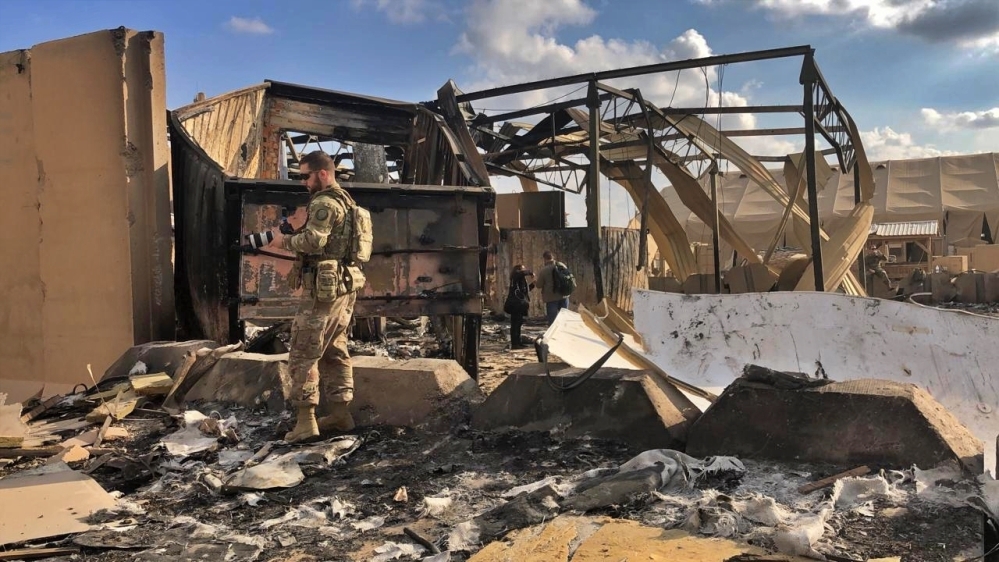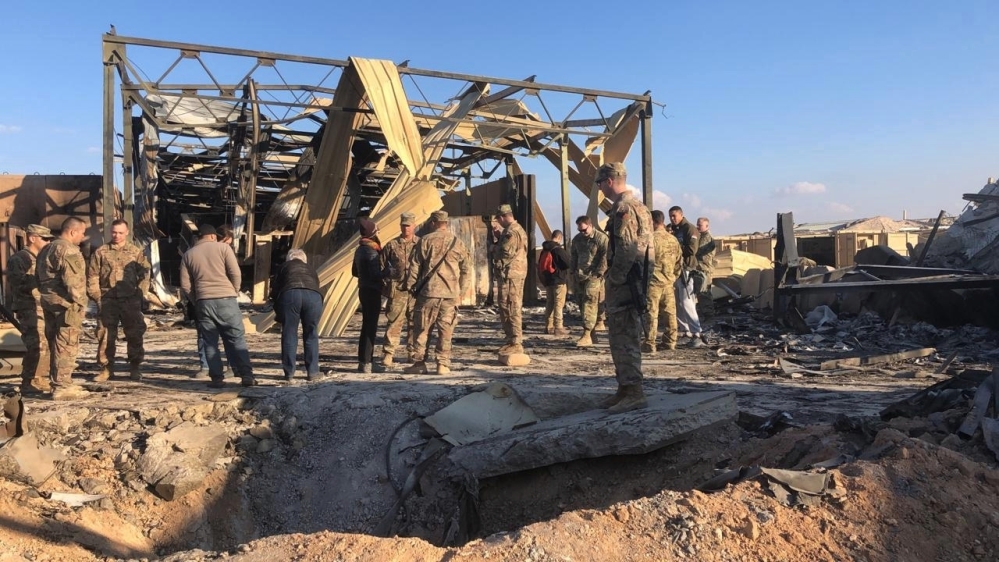Pentagon seeks Iraqi permission to deploy missile defences
The US request for permission to put Patriot missile systems at Iraqi bases hosting US troops comes after Iran attacks.

The United States has asked Iraq for permission to put Patriot missile systems at bases hosting US troops to improve defences against attacks like the January 8 Iranian missile attack that caused brain injuries to more than 50 US troops, Pentagon officials said Thursday.
“That is one of the matters we have to work on and work through” with the Baghdad government, Defense Secretary Mark Esper told a Pentagon news conference. He and Army General Mark Milley, chairman of the Joint Chiefs of Staff, made clear that they want Patriots in Iraq as part of an effort to improve the protection of US forces there.
Keep reading
list of 3 itemsIranian MP puts $3m bounty on President Donald Trump’s head
Iran’s new Quds leader vows ‘manly’ revenge for Soleimani killing
The Iran attacks came after the US killed top Iranian commander Qassem Soleimani in Iraq less than a week earlier.
The commander responsible for US forces in Iraq “feels he needs” the Patriot defences, Esper said, and “we support the commander.” He did not say what reasons the Iraqi government may have given for not approving the US request thus far.
Iraqi officials did not immediately comment.
The US has about 5,000 troops in Iraq to train and advise Iraqi security forces in their fight against armed groups like ISIL (ISIS). The relationship is especially rocky in the aftermath of the US killing of Soleimani.
The Iraqi government has indicated it could expel all foreign forces, although it has not yet taken action against the US presence.
There were no Patriots or other air defences in Iraq capable of shooting down ballistic missiles at the time of the Iranian attack that hit Ain al-Assad airbase in western Iraq. Milley said the missiles were armed with 1,000-pound and 2,000-pound high-explosive warheads.

Milley said that in addition to securing Iraqi government permission, the US military needs to work through mechanical and logistical issues to move a Patriot battalion to Iraq. There was not already one there because US commanders judged that Iraq was a less-likely target for an Iranian ballistic missile attack than other Gulf countries.
Asked whether the Iranian missiles could have been shot down before reaching their target if Patriots had been deployed at Ain al-Assad, Milley said, “That’s what they’re designed to do. Can’t say for certain, obviously” that they would have succeeded.
Esper defence Trump over brain injury comments
During Thursday’s news conference, Esper also sought to defend US President Donald Trump‘s response to US troops being diagnosed with traumatic brain injuries.
Last week, Trump appeared to play down the injuries, saying he “heard that they had headaches and a couple of other things,” prompting criticism from legislators and a US veterans group.
“I’ve had the chance to speak with the president; he is very concerned about the health and welfare of all of our service members, particularly those who were involved in the operations in Iraq, and he understands the nature of these injuries,” Esper said.
Milley said that the service members suffering from traumatic brain injuries had been diagnosed with mild cases. He added that the diagnosis could change as time went on.

Pentagon officials have said there had been no effort to minimise or delay information on concussive injuries, but its handling of the injuries following Tehran’s attack has renewed questions over the US military’s policy regarding how it deals with suspected brain injuries.
Since 2000, about 408,000 service members have been diagnosed with traumatic brain injury, according to Pentagon data.